Financial System Adaptability and Resilience
This research group investigates critical aspects of financial system adaptability and resilience. First, it analyses the impact of natural disasters on financial systems. Second, the group aims to investigate the effects of political preferences for the green transition. Third, the group's research analyses the role of culture in economies.
Research Cluster
Financial Resilience and RegulationYour contact

Mitglied - Department Financial Markets
EXTERNAL FUNDING
07.2016 ‐ 12.2018
Relationship Lenders and Unorthodox Monetary Policy: Investment, Employment, and Resource Reallocation Effects
Leibniz Association
We combine a number of unique and proprietary data sources to measure the impact of relationship lenders and unconventional monetary policy during and after the European sovereign debt crisis on the real economy. Establishing systematic links between different research data centers (Forschungsdatenzentren, FDZ) and central banks with detailed micro-level information on both financial and real activity is the stand-alone proposition of our proposal. The main objective is to permit the identification of causal effects, or their absence, regarding which policies were conducive to mitigate financial shocks and stimulate real economic activities, such as employment, investment, or the closure of plants.
01.2015 ‐ 12.2019
Interactions between Bank-specific Risk and Macroeconomic Performance
German Research Foundation (DFG)
Refereed Publications
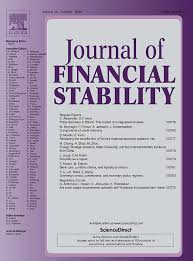
Is More Finance Better? Disentangling Intermediation and Size Effects of Financial Systems
in: Journal of Financial Stability, 2014
Abstract
Financial systems all over the world have grown dramatically over recent decades. But is more finance necessarily better? And what concept of financial system – a focus on its size, including both intermediation and other auxiliary “non-intermediation” activities, or a focus on traditional intermediation activity – is relevant for its impact on real sector outcomes? This paper assesses the relationship between the size of the financial system and intermediation, on the one hand, and GDP per capita growth and growth volatility, on the other hand. Based on a sample of 77 countries for the period 1980–2007, we find that intermediation activities increase growth and reduce volatility in the long run. An expansion of the financial sectors along other dimensions has no long-run effect on real sector outcomes. Over shorter time horizons a large financial sector stimulates growth at the cost of higher volatility in high-income countries. Intermediation activities stabilize the economy in the medium run especially in low-income countries. As this is an initial exploration of the link between financial system indicators and growth and volatility, we focus on OLS regressions, leaving issues of endogeneity and omitted variable biases for future research.
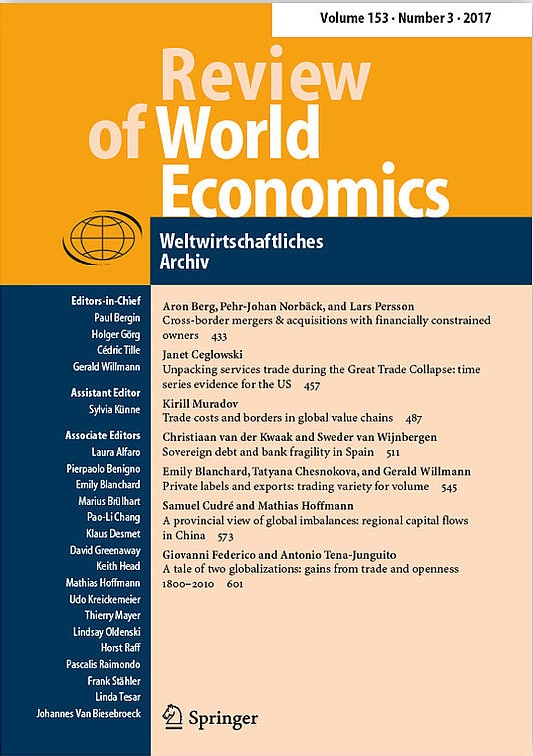
Financial Constraints and Foreign Direct Investment: Firm-level Evidence
in: Review of World Economics, No. 2, 2014
Abstract
Low productivity is an important barrier to the cross-border expansion of firms. But firms may also need external finance to shoulder the costs of entering foreign markets. We develop a model of multinational firms facing real and financial barriers to foreign direct investment (FDI), and we analyze their impact on the FDI decision. Theoretically, we show that financial constraints can affect highly productive firms more than firms with low productivity because the former are more likely to expand abroad. We provide empirical evidence based on a detailed dataset of German domestic and multinational firms which contains information on parent-level financial constraints as well as on the location the foreign affiliates. We find that financial factors constrain firms’ foreign investment decisions, an effect felt in particular by firms most likely to consider investing abroad. The locational information in our dataset allows exploiting cross-country differences in contract enforcement. Consistent with theory, we find that poor contract enforcement in the host country has a negative impact on FDI decisions.
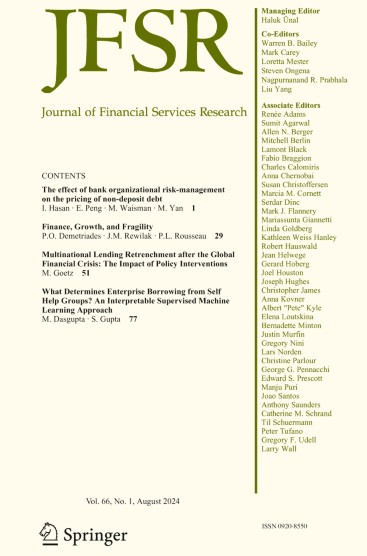
Why Do Banks Provide Leasing?
in: Journal of Financial Services Research, No. 2, 2014
Abstract
Banks are engaging in leasing activities at an increasing rate, which is demonstrated by aggregated data for both European and U.S. banking companies. However, little is known about leasing activities at the bank level. The contribution of this paper is the introduction of the nexus of leasing in banking. Beginning from an institutional basis, this paper describes the key features of banks’ leasing activities using the example of German regional banks. The banks in this sample can choose from different types of leasing contracts, providing the banks with a degree of leeway in conducting business with their clients. We find a robust and significant positive impact of banks’ leasing activities on their profitability. Specifically, the beneficial effect of leasing stems from commission business in which the bank acts as a middleman and is not affected by the potential defaults of customers.

IT Use, Productivity, and Market Power in Banking
in: Journal of Financial Stability, No. 4, 2013
Abstract
Information management is a core process in banking that can resolve information asymmetries and thereby help to mitigate competitive pressure. We test if the use of information technology (IT) contributes to bank output, and how IT-augmented bank productivity relates to differences in market power. Detailed bank-level information on the use of IT reveals a substantial upward bias in bank productivity estimates when ignoring banks’ IT expenditures. IT-augmented bank productivity correlates positively with Lerner markups. A mere increase in IT expenditures, however, reduces markups. Results hold across a range of bank output definitions and productivity estimation methods.
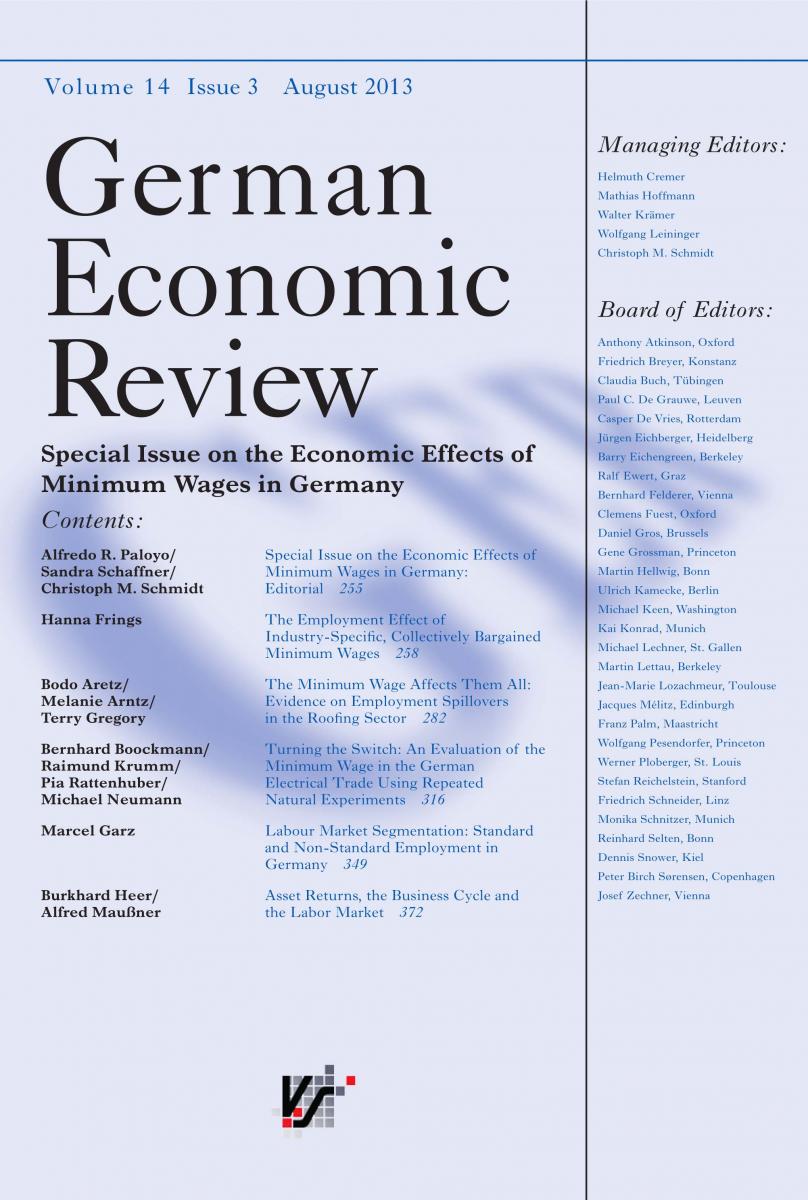
Has Labor Income Become More Volatile? Evidence from International Industry-Level Data
in: German Economic Review, No. 4, 2013
Abstract
Changes in labor market institutions and the increasing integration of the world economy may affect the volatility of capital and labor incomes. This article documents and analyzes changes in income volatility using data for 11 industrialized countries, 22 industries and 35 years (1970–2004). The article has four main findings. First, the unconditional volatility of labor income has declined in parallel to the decline in macroeconomic volatility. Second, the industry-specific, idiosyncratic component of labor income volatility has hardly changed. Third, cross-sectional heterogeneity is substantial. If anything, the labor incomes of high- and low-skilled workers have become more volatile relative to the volatility of capital incomes. Fourth, the volatility of labor income relative to the volatility of capital income declines in the labor share. Trade openness has no clear-cut impact.
Working Papers
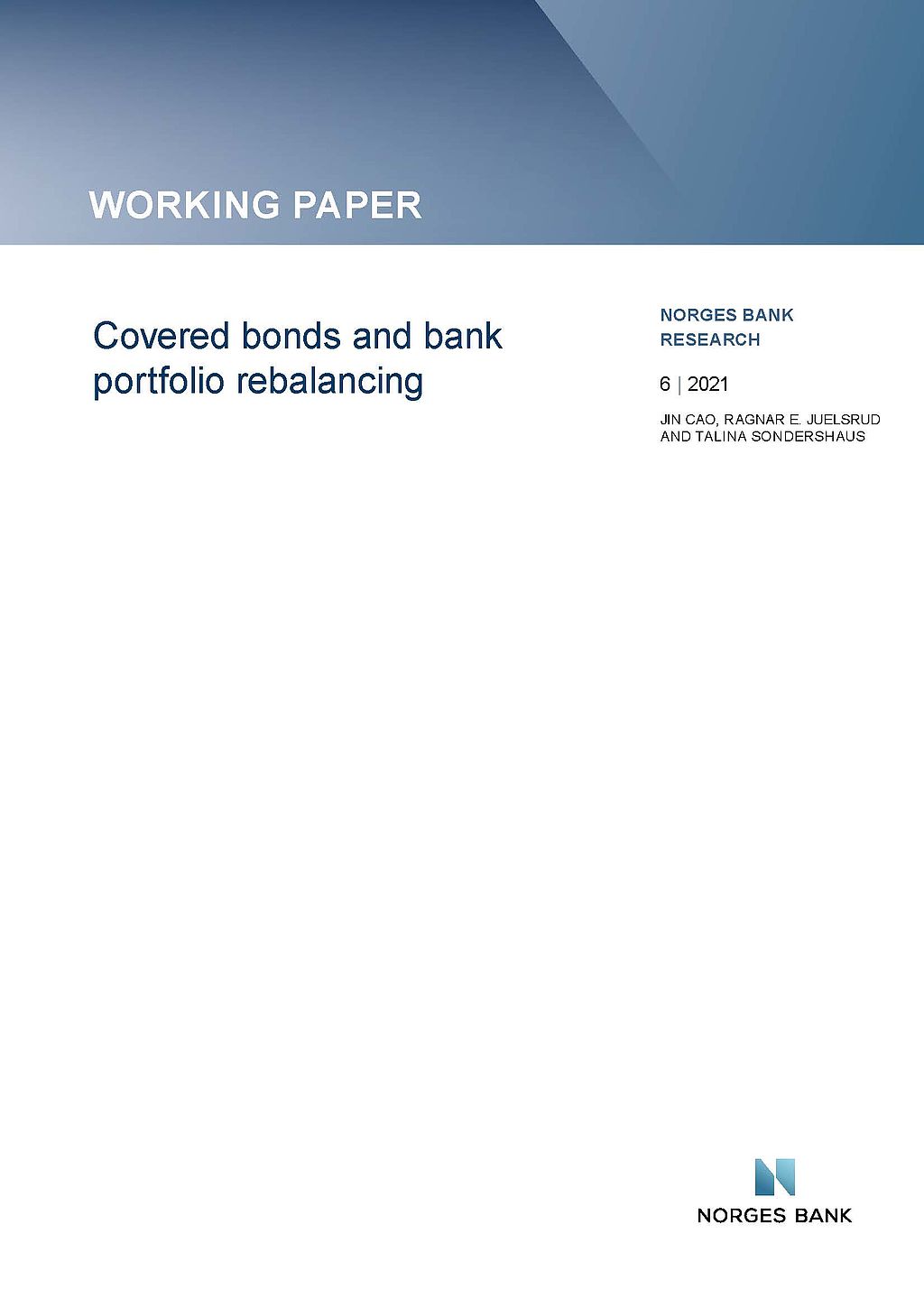
Covered Bonds and Bank Portfolio Rebalancing
in: Norges Bank Working Papers, No. 6, 2021
Abstract
We use administrative and supervisory data at the bank and loan level to investigate the impact of the introduction of covered bonds on the composition of bank balance sheets and bank risk. Covered bonds, despite being collateralized by mortgages, lead to a shift in bank lending from mortgages to corporate loans. Young and low-rated firms in particular receive more credit, suggesting that overall credit risk increases. At the same time, we find that total balance sheet liquidity increases. We identify the channel in a theoretical model and provide empirical evidence: Banks with low initial liquidity and banks with sufficiently high risk-adjusted return on firm lending drive the results.
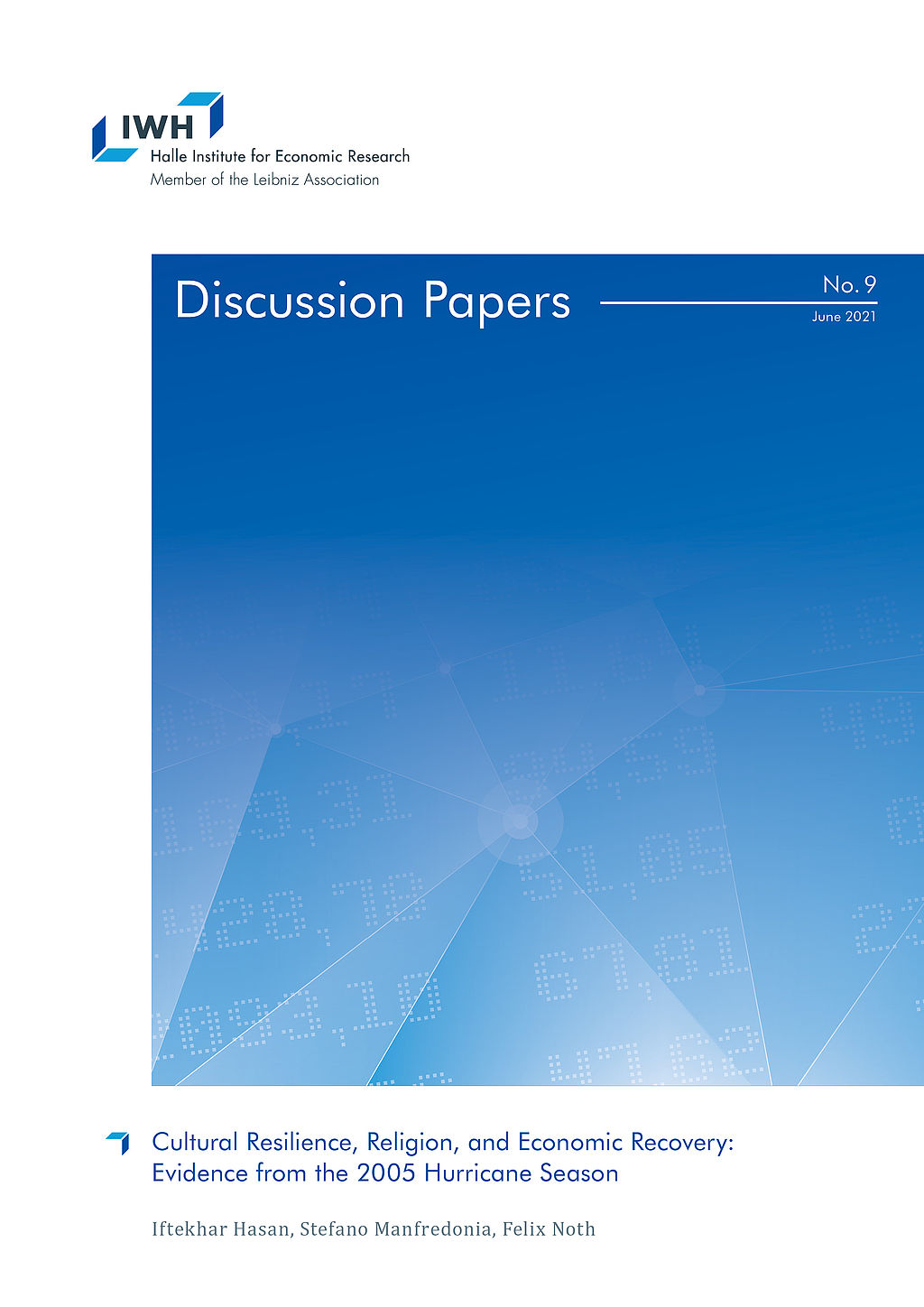
Cultural Resilience, Religion, and Economic Recovery: Evidence from the 2005 Hurricane Season
in: IWH Discussion Papers, No. 9, 2021
Abstract
This paper investigates the critical role of religion in the economic recovery after high-impact natural disasters. Exploiting the 2005 hurricane season in the southeast United States, we document that establishments in counties with higher religious adherence rates saw a significantly stronger recovery in terms of productivity for 2005-2010. Our results further suggest that a particular religious denomination does not drive the effect. We observe that different aspects of religion, such as adherence, shared experiences from ancestors, and institutionalised features, all drive the effect on recovery. Our results matter since they underline the importance of cultural characteristics like religion during and after economic crises.
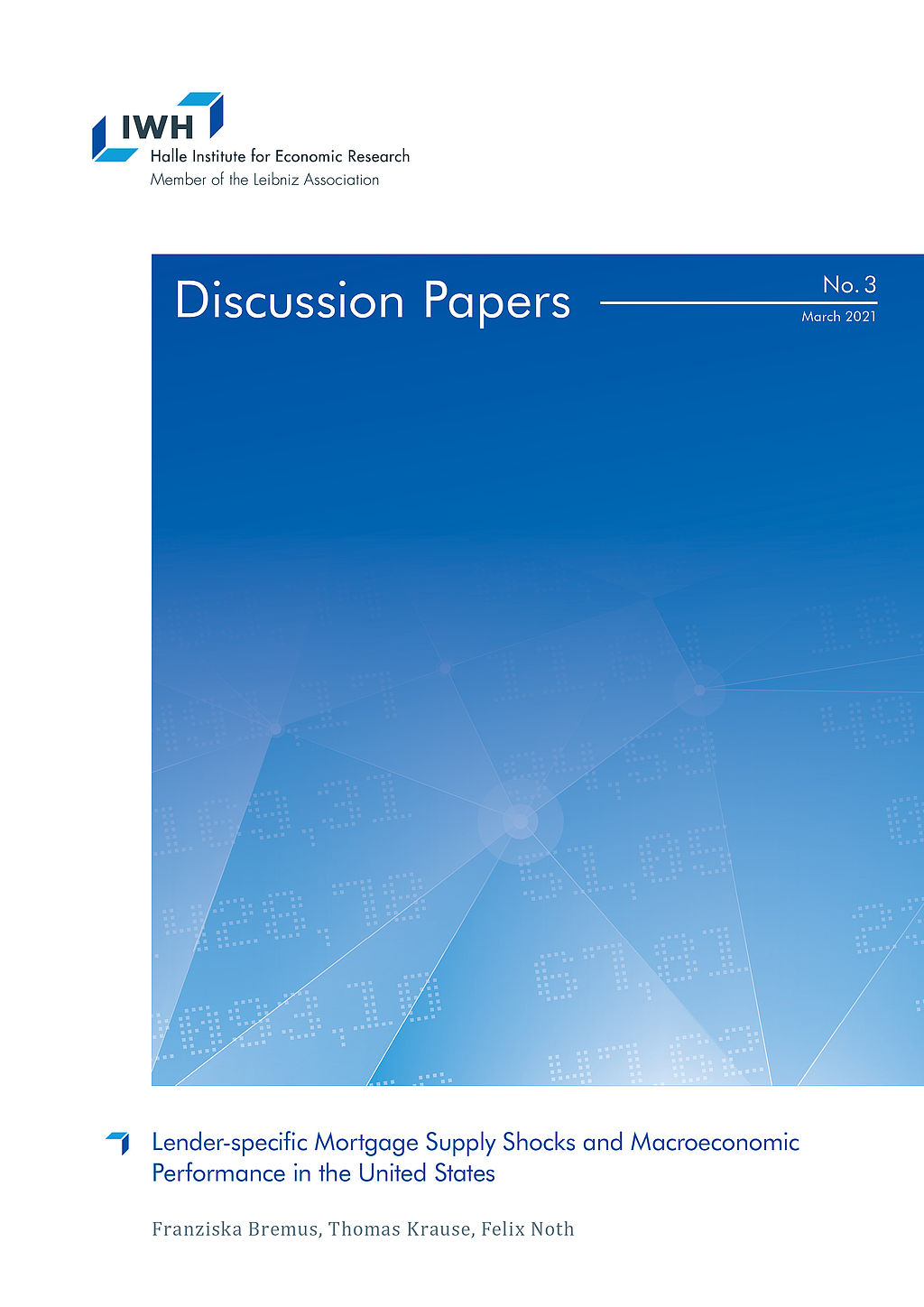
Lender-specific Mortgage Supply Shocks and Macroeconomic Performance in the United States
in: IWH Discussion Papers, No. 3, 2021
Abstract
This paper provides evidence for the propagation of idiosyncratic mortgage supply shocks to the macroeconomy. Based on micro-level data from the Home Mortgage Disclosure Act for the 1990-2016 period, our results suggest that lender-specific mortgage supply shocks affect aggregate mortgage, house price, and employment dynamics at the regional level. The larger the idiosyncratic shocks to newly issued mortgages, the stronger are mortgage, house price, and employment growth. While shocks at the level of shadow banks significantly affect mortgage and house price dynamics, too, they do not matter much for employment.
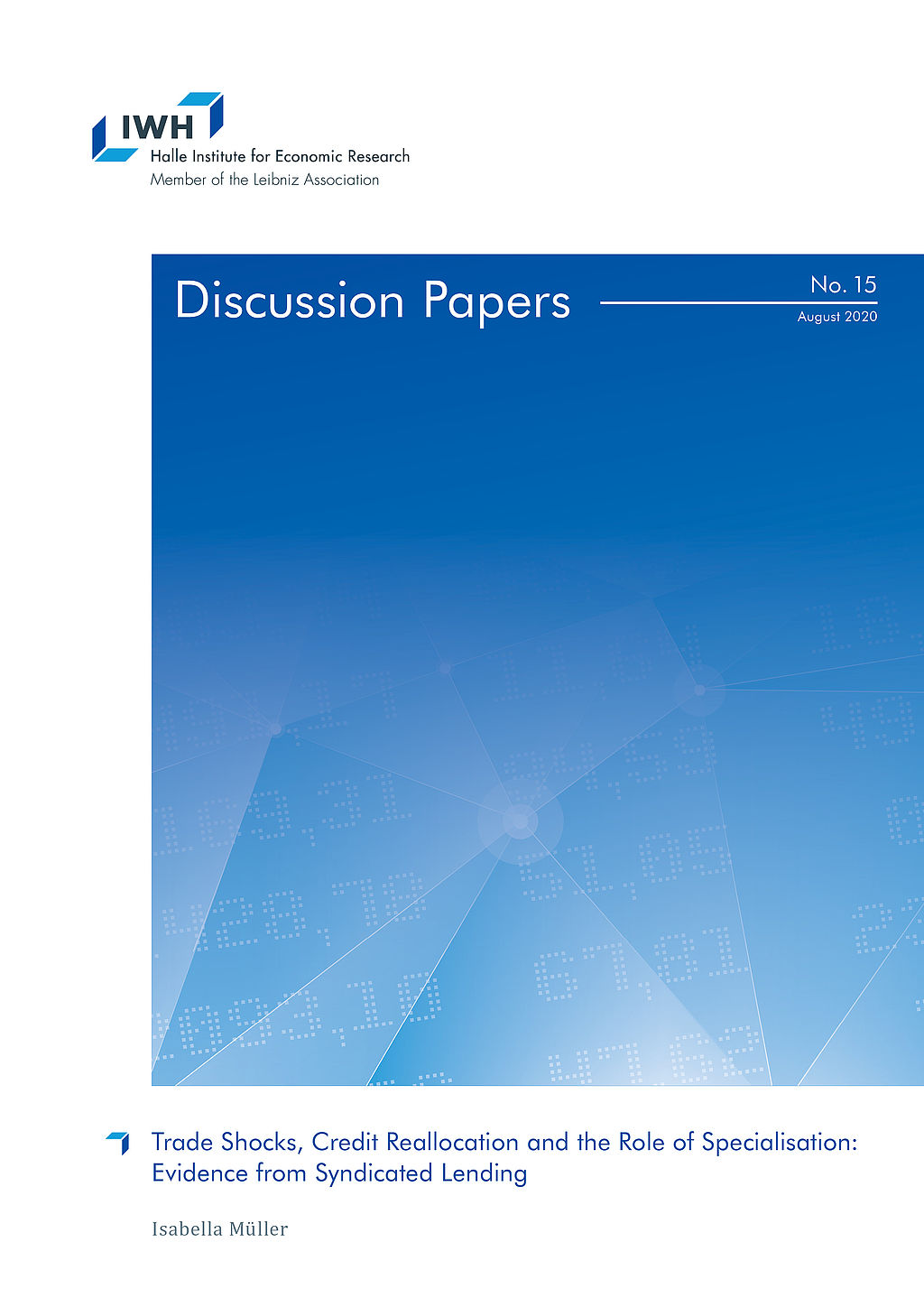
Trade Shocks, Credit Reallocation and the Role of Specialisation: Evidence from Syndicated Lending
in: IWH Discussion Papers, No. 15, 2020
Abstract
This paper provides evidence that banks cut lending to US borrowers as a consequence of a trade shock. This adverse reaction is stronger for banks with higher ex-ante lending to US industries hit by the trade shock. Importantly, I document large heterogeneity in banks‘ reaction depending on their sectoral specialisation. Banks shield industries in which they are specialised in and at the same time reduce the availability of credit to industries they are not specialised in. The latter is driven by low-capital banks and lending to firms that are themselves hit by the trade shock. Banks‘ adjustments have adverse real effects.
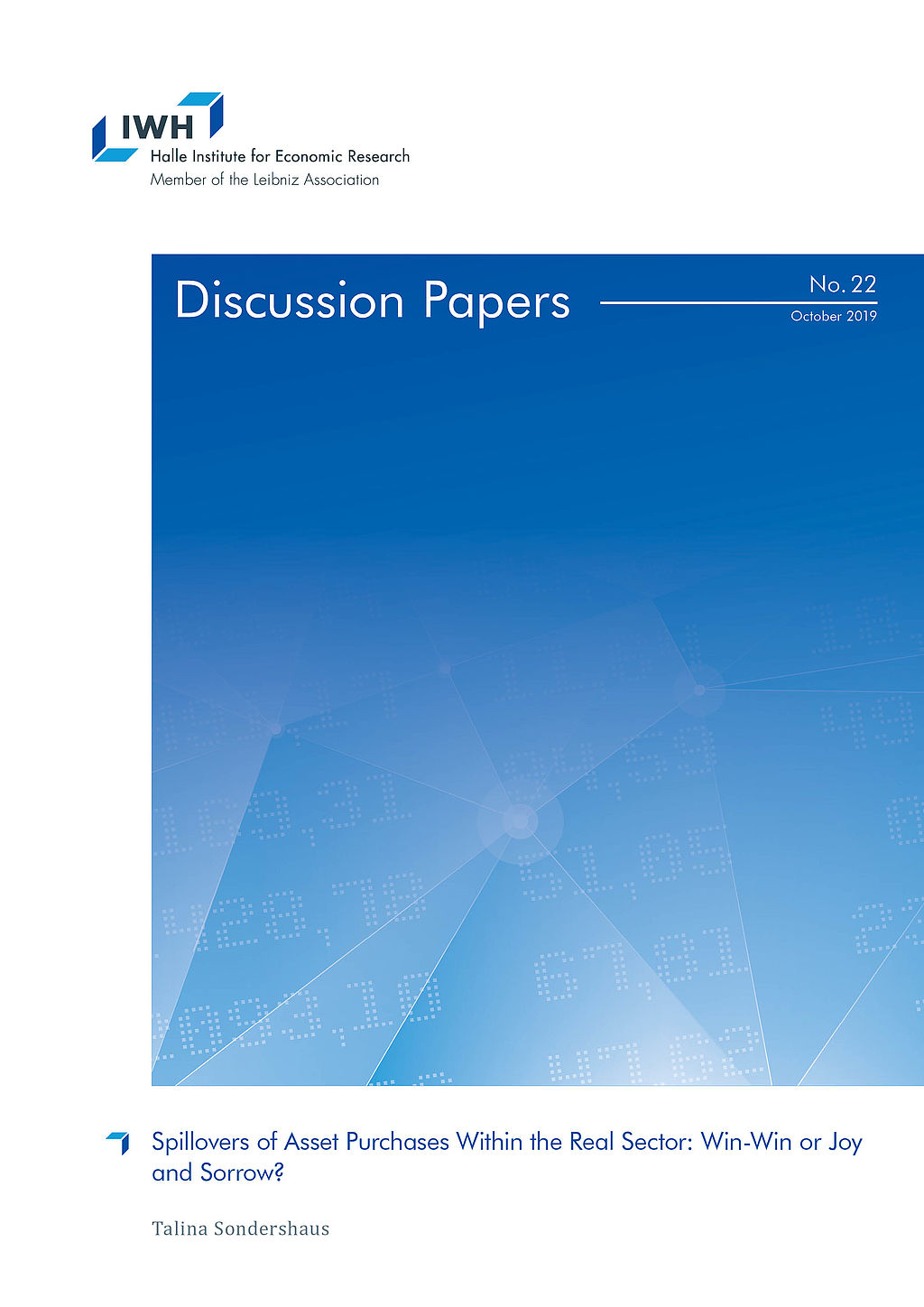
Spillovers of Asset Purchases Within the Real Sector: Win-Win or Joy and Sorrow?
in: IWH Discussion Papers, No. 22, 2019
Abstract
Events which have an adverse or positive effect on some firms can disseminate through the economy to firms which are not directly affected. By exploiting the first large sovereign bond purchase programme of the ECB, this paper investigates whether more lending to some firms spill over to firms in the surroundings of direct beneficiaries. Firms operating in the same industry and region invest less and reduce employment. The paper shows the importance to consider spillover effects when assessing unconventional monetary policies: Differences between treatment and control groups can be entirely attributed to negative effects on the control group.


















